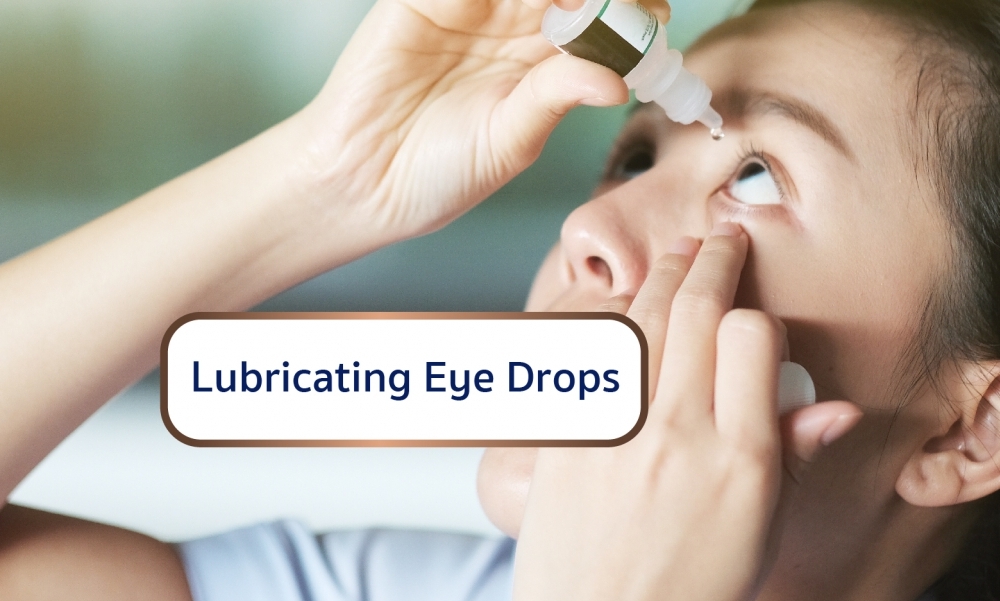The scratchy, burning feeling and irritation of dry eyes can be very uncomfortable. Eye strain from computer use, certain medical conditions, and smoky or windy environments are just a few dry eye causes.
What Are Lubricating Eye Drops?
Lubricating eye drops—also called artificial tears—add moisture to the eyes to relieve this discomfort.
How Do Lubricating Eye Drops Work?
Most lubricating eye drops provide moisture and relief for dry eyes due to temporary causes, like being tired or being in a dry climate. The drops work by adding some of the same elements that your tears naturally have. Supplementing your natural tears with artificial tears helps your tear film work more effectively to protect the surface of your eyes.
You can get lubricating eye drops, or artificial tears, without a prescription. There are many brands to choose from, but keep in mind that no single brand works best for all types of dry eye. You might need to try a few different brands to find the one that works best for your eyes.
For more severe dry eyes, you may need to use a lubricating ointment or gel. These are thicker than regular drops and stay in your eyes longer. They may blur your vision temporarily, so most people prefer to use them just before bedtime.
Are Lubricating Eye Drops Safe?
Lubricating eye drops are generally safe to use as often as you need them if they do not have preservatives. Eye drops with preservatives have chemicals that are designed to keep bacteria from growing in the bottles once they are opened.
Many people find that the preservatives irritate their eyes, particularly if they have more severe dry eye. Many eye doctors recommend not using eye drops with preservatives more than four times a day.
Preservative-free eye drops have fewer additives. They are usually recommended for people with moderate to severe dry eye. They are often best for those who use artificial tears more than four times a day.
Artificial tears can have side effects, such as blurry vision. It is also possible to have an allergic reaction to the medication. Symptoms can include itchiness, swelling, breathing problems, feeling dizzy, or feeling sick. If you see any symptoms like this, stop using the eye drops and see a doctor right away.
When Should You Talk With Your Ophthalmologist About Lubricating Eye Drops?
If you have tried different brands of lubricating eye drops and your eyes are still uncomfortable, talk with your ophthalmologist. There may be other options for safely and effectively treating your dry eyes.
Remember: if you have any concerns about your eyes, from dryness to vision problems, give your ophthalmologist a call.
Information from American Academy of Ophthalmology
 02-056-3333
02-056-3333





